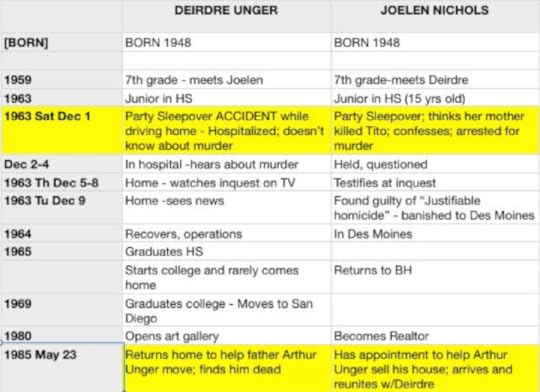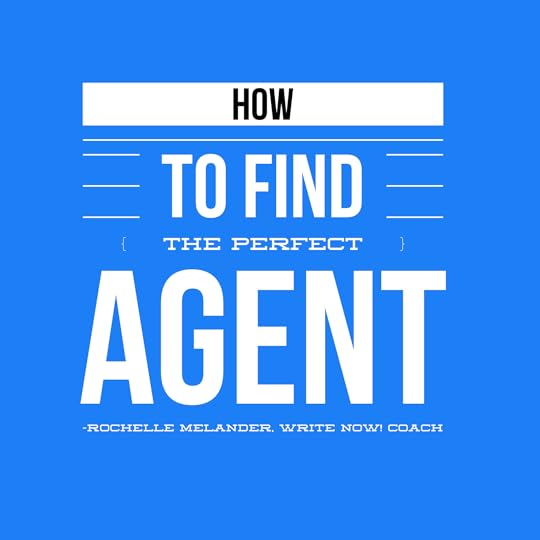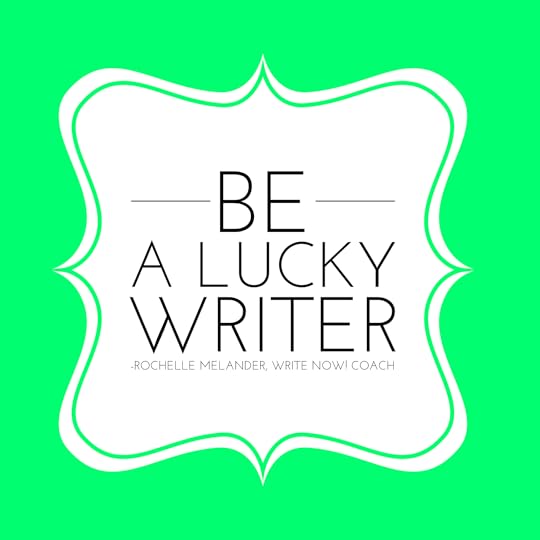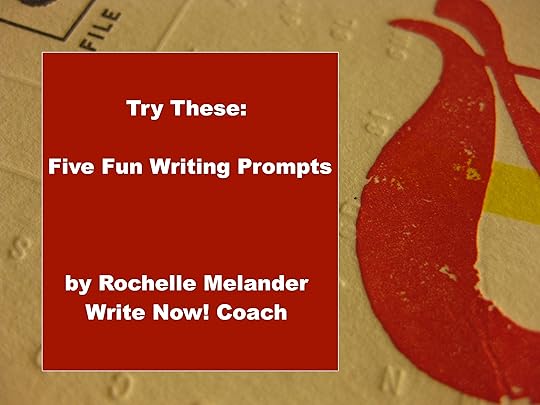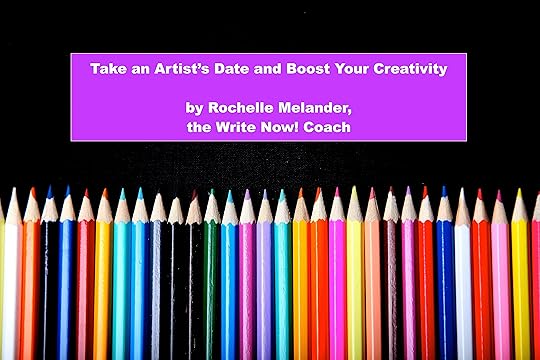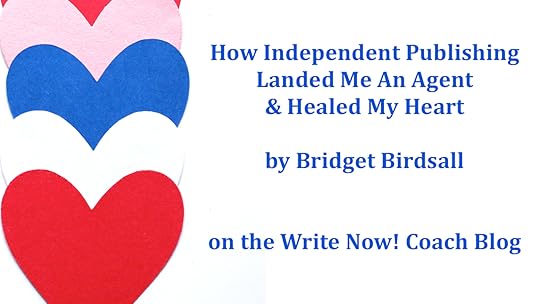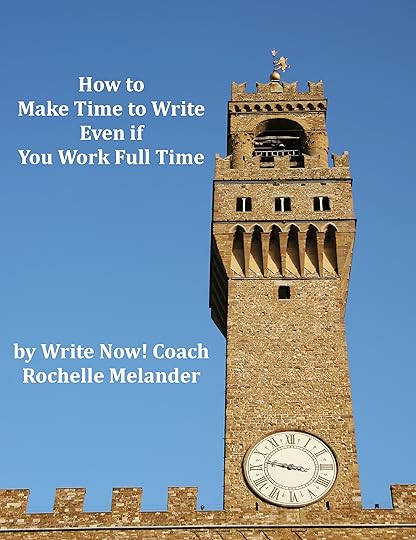Rochelle Melander's Blog, page 6
April 7, 2015
Juggling Timelines in Your Novel by Hallie Ephron
Note From Rochelle
Dear Writers,
Last fall, I had the privilege of attending Mystery Writers of America MWA University. While there, I heard Hallie Ephron speak about Dramatic Structure and Plotting—which changed the way I think about writing fiction. I’ve invited her to the blog to talk about one small aspect of plotting—how to juggle timelines. She demonstrates that skill brilliantly in her brand new suspense novel, Night Night, Sleep Tight.
Happy Writing!
Rochelle, the Write Now! Coach
By Hallie Ephron, New York Times best selling author of Night Night, Sleep Tight
I had no idea I was making trouble for myself when I started writing a novel that began by reuniting two characters who haven’t seen each other in twenty years.
In Night Night, Sleep Tight Deirdre Unger and Joelen were fifteen years old the last time they were together on the night when Joelen’s movie star mother’s boyfriend Antonio “Tito” Acevedo was stabbed to death. They’re reunited twenty years later, soon after Deirdre finds her father floating face down in his swimming pool.
So there’s the story of what happened back in 1963 and the story of what’s happening in the “present” (1985). With two timelines, the storytelling can’t be straightforward. It has to zigzag as events in the present trigger memories from the past.
Writing the back and forths, I got hopelessly mixed up until I hit on a way creating a timeline for both characters, past and present, and lining them up so I could figure out see what each was up to in each one’s parallel universe.
Here’s part of the timeline I created for my novel. The highlighting shows when the characters are together, same time and same place.
I went on, laying in parallel timelines for 6 other characters, stretching it back to their births and forward to the end of the novel’s timeline.
This was enormously helpful because if I started to write “It had been four years ago that…” I could go to my timeline and see if that was correct. It also helped me dressing and coiffing my characters (torn-neck T shirts and long curly hair ’63-65 after the movie “Flashdance”` came out) and getting my “current” events and cultural references right.
Much of what I wrote down—what was going on in the characters’ timelines—never found its way into the novel. But building a “real” life for each helped me to understand why my characters behaved the way they did on the page.
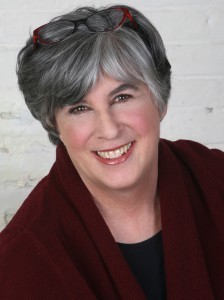 About the author. HALLIE EPHRON is the New York Times bestselling author of Night Night, Sleep Tight. She also wrote the Edgar-nominated Writing and Selling Your Mystery Novel and is a regular crime fiction book reviewer for the Boston Globe. Night Night, Sleep Tight, is inspired by an infamous murder that took place Beverly Hills when she was growing up there in the ‘60s, surrounded by but never part of Hollywood glamour. The book received a starred review in Publisher’s Weekly (“a captivating thriller”) and the Richmond Times-Dispatch raves, “So hooray for Hollywood, hooray for homicide, and hooray for Hallie Ephron, who begins with a seed of truth and grows it into a bumper crop of crime and cynicism.” Her earlier novels—Never Tell a Lie, Come and Find Me, and There Was an Old Woman—were all finalists for the Mary Higgins Clark Award. Visit her online at: http://HallieEphron.com
About the author. HALLIE EPHRON is the New York Times bestselling author of Night Night, Sleep Tight. She also wrote the Edgar-nominated Writing and Selling Your Mystery Novel and is a regular crime fiction book reviewer for the Boston Globe. Night Night, Sleep Tight, is inspired by an infamous murder that took place Beverly Hills when she was growing up there in the ‘60s, surrounded by but never part of Hollywood glamour. The book received a starred review in Publisher’s Weekly (“a captivating thriller”) and the Richmond Times-Dispatch raves, “So hooray for Hollywood, hooray for homicide, and hooray for Hallie Ephron, who begins with a seed of truth and grows it into a bumper crop of crime and cynicism.” Her earlier novels—Never Tell a Lie, Come and Find Me, and There Was an Old Woman—were all finalists for the Mary Higgins Clark Award. Visit her online at: http://HallieEphron.com
April 1, 2015
Guest Post: Write Your Bestselling, Client-Attracting Book in a Weekend and Make a Fortune! by Rich van Smarmington
Writers,
I’m delighted to welcome my colleague Rich van Smarmington to the blog. He read Write-A-Thon: Write Your Book in 26 Days (and Live to Tell About It) and told me he could teach you how to write even faster (and make a fortune). So, I’m giving him a shot even though I don’t believe you can write a book in just a weekend. Also, I’ve never made THAT kind of money from my books. But whatever. I hope his program works for you. It hasn’t worked for me. Yet.
Rochelle, the Write Now! Coach
 Write Your Bestselling, Client-Attracting Book in a Weekend and Make a Fortune!
Write Your Bestselling, Client-Attracting Book in a Weekend and Make a Fortune!
(No Training, No Work and No Expertise needed!)
by Rich van Smarmington, bestselling author and social media guru
Teaching You How to Do Less and Earn More since 2014
Do you dream of quitting your day job? Is writing a book on your bucket list? Do you long to make money by teaching seminars from the comfort of your million-dollar beach house? Now you can. I’ve perfected a process that’s fast, easy, and, best of all, takes no preparation. Here’s how:
1. Get real. Do you really want to drink the horrible office coffee for the rest of your working life? How long are you planning to let your brother-in-law look down his large snout at you just because his luxury car cost more than that piece of crap car you drive to work? And can you face one more high school reunion as the loser you are? Get real about life. You can fix this. And I can show you how.
2. Find your desperados. You’re desperate to make money and be famous, right? Capitalize on that feeling. Find a large group of frantic people and resolve to fix their problem, even if you don’t know how. Take a look at #3 and learn how to find an answer to their dilemma fast.
3. Get expertise. Have you always thought you needed a pesky PhD or years of experience to become an expert? Think again. All you need to do is read one book and you will know more about your topic than 97% of the population. So find a book that will fix your desperados’ problem and read it. And since you only have a weekend, read fast.
4. Write. Now that you’ve read the book, all you have to do is write one of your own. Just make it simpler than the one you read. You only have a weekend, and there’s only so much you can write in a few days, so don’t yammer on. Get to the point. Here’s the outline we use at the Write Your Bestselling, Client-Attracting Book in a Weekend and Make a Fortune Program (WYBCABIAWAMAFP):
Chapter One: Describe your desperados’ problem with a great story. Reel them in with details of how bad it can be. (Use the senses! What does their problem smell like?) Let them know that you can help them. Just don’t tell them how. Yet.
Chapter Two: Talk more about the problem. Make lists of the symptoms of their problem. Tell the stories of how real people who experience these problems feel. List the effects of having this horrible problem.
Chapter Three: Talk about how a solution might be able to relive the stress of experiencing the problem.
Epilogue: Give your readers a taste of the solution. Let them experience just a little of how you can help them solve their horrible problem. Just don’t give them more details. Do let them know that you’ll share all of your secrets at the thousand-dollar seminar and your $10,000 private coaching package.
5. Package it! Slap a shiny cover on that little beauty and get it online. Make sure you list it in a tiny little category that speaks directly to your desperados so that you can own that category and claim the title, “bestselling author.” And put up a squeeze-page site to sell your seminar and coaching package.
Bonus: Now add “bestselling author” to your email signature and every single one of your social media profiles. Talk about yourself incessantly online and offline, and push that coaching program on your desperados. Before the week’s over, you’ll be rich!
March 31, 2015
Three Surprising Reasons to Write Poetry by Rochelle Melander
Creativity is intelligence having fun. —Albert Einstein
Most of my clients write serious stuff, novels about tough subjects and nonfiction
books with big ideas. Come to think of it, I’m usually writing about the darker parts
of life. That’s why every so often, I like to forget about my big projects and write
poetry, preferably silly poetry.
Tomorrow night, in honor of April Fool’s Day and National Poetry Month, I’ll be
teaching a class on Foolish Poetry at the library. We’ll dust off our rhyming
dictionaries and pen limericks. We’ll puzzle out some riddle poems. And we’ll
put together our irrational thoughts in an absurdity poem.
I don’t believe anyone should have to justify the time they spend writing
poetry—even silly poetry. But if you worry that writing poetry is a WASTE of
time, here are three reasons to try it:
1. You’ll be in good company! Lots of smart people with important day
jobs wrote poetry. Like who?
+Wallace Stevens, a lawyer and vice president of Hartford Accident and
Indemnity Company, wrote several books of poetry including Ideas of Order.
+T.S. Eliot worked in as a clerk in a bank for several years before going on to
work as an editor and professor. He’s the author of many beloved poems, plays
and prose, including, The Waste Land and Journey of the Magi. And of course,
we have him to thank for the hilarious, Old Possum’s Book of Practical Cats
(which became the musical Cats).
+William Carlos Williams, author of the wonderful poems The Red Wheelbarrow and
This is Just to Say (and many others), worked as a physician in Rutherford, New Jersey
for forty years.
(For more day jobs of poets, see this awesome comic.)
2. Your brain will get a workout. Poetry forces you to communicate complex ideas
with just a few words. I think it was Blaise Pascal who first said, “I would have written
a shorter letter, but I did not have the time.” With poems, writers don’t have the
luxury of multiple chapters to unpack the meaning of love, death, and life. They have
to do it in a few lines or stanzas. On top of that, poetry writers have to fit all of their
ideas into a specific format. The best poets choose words with attention to rhythm,
rhyme and so much more. All of this word play stretches your brain.
3. You can work through your emotional baggage. Psychologists have studied
the healing benefits of reading and writing poetry. In fact, there’s even a
National Association for Poetry Therapy. Poetry gives you the opportunity to take
your worst experiences and make sense of them through language. (If you need a
book on this, try Poetic Medicine: The Healing Art of Poem Making by John Fox.)
Are you convinced yet? If so, grab a notebook and a pen and play with words.
If you need a little support, try one of the prompts I’m giving to my class
tomorrow night:
1. Writing a poem about a made-up illness. Take a look at this wonderful list of
medical prefixes and suffixes online and use it to make up a few diseases like:
Praiseorrhea—what first-time parents do when their children do ANYTHING.
Blabiosis—what my children say I do with my friends.
Scoliology—the study of twisted things
2. Write a riddle poem
Here’s one from The Guess Book (c. 1820)
Riddle: The beginning of eternity,
The end of time and space,
The beginning of every end,
And the end of every place.
Answer: The letter e
3. Write a limerick.
It doesn’t have to be about a naked lady. Try one about someone who annoys
you or something that puzzles you, like time travel. Here’s a fun one:
There once was a young lady named bright
Whose speed was much faster than light
She set out one day
In a relative way
And returned on the previous night.
- Anonymous
Happy Poetry Writing!
March 24, 2015
How to Find the Perfect Agent by Rochelle Melander
There was a time in the not-so-distant past when agents were an essential part of achieving success as a writer. That’s no longer true. Today, writers can succeed without an agent by publishing with small presses, connecting with editors directly, or publishing their own books. But for some writing genres (children’s, popular fiction, some nonfiction), it’s still helpful to have an agent to connect with the big publishers and broker a great deal. Here’s my quick guide for finding the right agent.
Who is YOUR perfect agent? Look for someone who
+represents books like yours. Most agents have niches or types of books that they represent. If you send your book proposal on the life cycle of seals to an agent who only represents mystery novels, you will get rejected.
+supports you, your career, and your book in a way that works for you. Some agents are interested in supporting clients in developing a writing career. Others deal with one book at a time. As you seek out an agent, it is important to know what kind of support you need from your agent.
+is connected to people in publishing who will buy your book. An agent cannot do anything for you unless he or she is connected to editors in your field. The best agents have developed good relationships with several editors in their niche.
+is willing to negotiate the best contract. Agents get to do what writers cannot do for themselves—fight for more money, both as advance and in royalties.
How to find YOUR perfect agent!
1. Make a list of potential agents. It takes time to find an agent who is right for you. Most writers I know feel so desperate to move forward that they will take any agent that says yes. Don’t. It is important to research agents in order to find one that works to you.
+Search online. Both AgentQuery.com (no cost) and WritersMarket.com (yearly fee) offer online search tools for agents. Writers can search for agents according to the types of books they represent.
+Check acknowledgments. Most writers thank their agents in the acknowledgments. Look at books that are in your niche or writers who are similar to you and find out who agented their books.
+Ask. Talk to your critique group colleagues and other writing friends about their agents. Most writers are willing to share the name of their agents. Some will even introduce you to them.
2. Get to know the agents on your list. Before you query, learn as much as you can about the agents you’re interested in. You can figure out a lot about who an agent is, how they work, and what they’re looking for without ever talking to one.
+Visit their website or blog (or both).
+Follow them on Twitter.
+Search for information about them online.
+Attend conferences where they speak.
3. Connect and submit!
Once you’ve learned what agents you want to connect with, write the best query letter and synopsis or book proposal you can. Then, submit! Of course, the best way to query is to send letters to agents who are ready to welcome your queries. Usually, these are agents you’ve met through:
+A writing conference
+PitMad (A pitch party on twitter. http://www.brenda-drake.com/pitmad/)
+A mentor, colleague, or friend
Happy hunting, friends!
March 17, 2015
Write Now! Tip: Be a Lucky Writer by Rochelle Melander
17 March 2015
Note From Rochelle
Dear Writers,
In Milwaukee, where I live, they’ve been celebrating St. Patrick’s Day since the first weekend in March. Today, the bars open at 6:00 AM for Irish breakfasts and, of course, beer.
Even if you’re not Irish, you might be interested in today’s article about how to be a lucky writer!
Happy Writing! Rochelle, the Write Now! Coach
When I was young, I often spent hours searching for four-leaf clovers. I knew that finding one would bring me good luck.
Although I’ve mostly grown out of that notion, I sometimes attribute writing success to luck. When someone lands a big agent, repeatedly gets good writing gigs, or has a bestseller, I might think: “That writer has the best luck!”
Then I remember the old adage from Louis Pasteur, “Fortune favors the prepared mind.”
For the most part, the luckiest writers read a lot, write regularly, attend conferences, submit their work, and regularly connect with readers.
Yes, sometimes they also have amazingly good luck—how else can we explain the wild success of some of the less well-written best sellers? (I’m not naming names.)
But we have no control over luck. All we can do is write, submit, revise, and promote—and repeat until fortune favors our preparedness!
March 10, 2015
Try These Five Fun Writing Prompts by Rochelle Melander
Last month at Dream Keepers, I worked with nine-year-old boy who wanted to write his autobiography. He titled it, “The Challenges of My Life.” I immediately fell in love with his idea—what a brilliant structure for a memoir.
When my writing feels stale or I get stuck in the middle of a narrative, sometimes an intriguing structure or format will help me approach my story in a new way. I’ve used the following five formats with my Dream Keepers Writing Circles for years—and perhaps they’ll help you get inspired to write now!
1. Life list. For years, coaches and other life management professionals have encouraged people to write their life lists—50 or 100 things they want to do before they die. But that future focus might not be quite right for you. Use my student’s idea and write about the 50 challenges of your life. Or perhaps you’d rather write about strengths—list 50 of your biggest or least known accomplishments. If you’re writing a novel, create a life list for one or more of your characters.
2. Protest document. Maybe it’s because I grew up Lutheran, but I’ve always been intrigued by Martin Luther’s The 95 theses on the Power and Efficacy of Indulgences, his protest document against the church. Luther’s act of posting the 95 Theses on the door of All Saints’ Church in Wittenberg, Germany ignited the Protestant Reformation. No doubt you or one of your characters has something or someone to protest? Write it, post it—and see what happens next.
3. Policies and Procedures. Many of my colleagues earn their incomes writing technical documents, like policy and procedure manuals. I’ve often wondered if there are individuals who write policy and procedure manuals for their homes or families. (It sure would save a lot of time if I could answer the questions my children ask with, “Check the manual!”) If you’re not sure what to write next and are itching for some fun, write a policy or procedure document for an event or activity in your life.
4. Lab Report. I envy scientists, with their experiments and data and formats for reporting the information. It all seems so concrete. Sometimes I fantasize about creating a hypothesis and running an experiment about why my daughter leaves her dirty socks all over the house. What do you need to track in your life? Does one of your characters have a hypothesis they need to test out? Can you or they create an experiment and then write up a lab report? For a lab report template, check online.
5. Tall Tale. I love tall tales because you can throw in elements that are wildly improbable and exaggerate just about everything, and it all seems to fit. When I am struggling to write a scene, sometimes writing it in a different genre—like a tall tale—can help me discover the essential elements of the scene. Then, I can go back to the beginning and write the scene in the genre I am working in. When I’m thinking about my own life, a tall tale can help me laugh and gain perspective.
Your turn: What writing formats have helped you break through blocks and write more?
Note: A version of this tip appeared at the #amwriting blog a few years ago.
March 3, 2015
The Artist’s Date by Rochelle Melander
3 March 2015
Note From Rochelle
Dear Writers,
I’m so happy it’s March! This Saturday (March 7th), I’ll be celebrating March and Dr. Seuss’s birthday by teaching Boing! Bam! Boom! at Central Library in Milwaukee, WI, from 11:00 AM to 1:00 PM. Bring your kids and join me in writing noisy poetry!
Today’s tip is about one of my favorite activities—taking an artist’s date!
Happy Writing
Rochelle, the Write Now! Coach
In The Artist’s Way, Julia Cameron encourages readers to take a weekly artist’s date. I love the idea but rarely take time to do it. This year, the winter has been long and cold. Just leaving the house and braving the icy sidewalks feels daring. But in these dark winter days, more than ever, I need to take time for artist’s dates. As Cameron says, “Always, when I return to the practice of Artist’s Dates, my sense of wellbeing increases and my work deepens and enlarges.” Walking in the World: The Practical Art of Creativity by Julia Cameron, p 10) Here are five fun and free ways to nourish your creative spirit on an artist’s date:
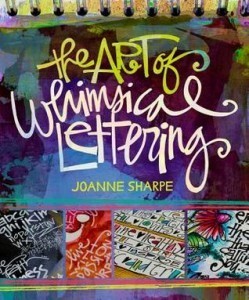 1. The Kitchen Table. Get out your art and craft supplies and make something. Don’t worry about being fancy or professional—all you need for this activity is paper and crayons or colored pencils. Scribble and enjoy! (Pro Tip: My favorite companion lately has been the book The Art of Whimsical Lettering by Joanne Sharpe. Loads of fun with letters!)
1. The Kitchen Table. Get out your art and craft supplies and make something. Don’t worry about being fancy or professional—all you need for this activity is paper and crayons or colored pencils. Scribble and enjoy! (Pro Tip: My favorite companion lately has been the book The Art of Whimsical Lettering by Joanne Sharpe. Loads of fun with letters!)
2. The Library. Visit your local public library and wander around until you find a 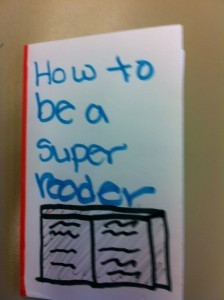 section that piques your curiosity. Grab a book. Repeat the process (wander, get curious, grab a book) until you have a stack of books. Find a cozy corner of the library and page through the book much like you would wander through an art museum. Stop on the pages that intrigue you, skip the ones that don’t.
section that piques your curiosity. Grab a book. Repeat the process (wander, get curious, grab a book) until you have a stack of books. Find a cozy corner of the library and page through the book much like you would wander through an art museum. Stop on the pages that intrigue you, skip the ones that don’t.
3. The Music Device. My teenage son is a musician and insists that the best way to understand an album is to listen straight through, from beginning to end. Choose an album that you love and listen from beginning to end. Or make a playlist of songs to spark your creativity. (And if you don’t have a music device, don’t worry. Use the radio, an online streaming service, or YouTube to get your music fix!)
4. The Junk Store. Maybe my favorite part of visiting craft fairs is seeing how  artists repurpose everyday objects to make art. Though I work with words rather than stuff, I like visiting second hand stores. Sometimes I think about how I could makeover old items. At other times, I’m happy to just wander and admire the art of every day things—dishes, fancy shoes, and books.
artists repurpose everyday objects to make art. Though I work with words rather than stuff, I like visiting second hand stores. Sometimes I think about how I could makeover old items. At other times, I’m happy to just wander and admire the art of every day things—dishes, fancy shoes, and books.

Maisie wants to make art, too!
5. The Zoo, Aquarium, or Humane Society. We got a new dog in February. As crazy as it’s been to cope with a young dog in the middle of winter, it’s also brought great joy to our lives. Take an afternoon off to visit the animals or hang out with your own.
This winter, don’t whine about being tired or burned out. List 20 activities and places that you could do for an artist’s date and start planning. Remember, you can do an artist date without spending a dime—take a walk in the woods, attend an author’s book reading, or visit a building with great architecture. Just get out of the house and have fun! I’m guessing this small act will have big results for you.
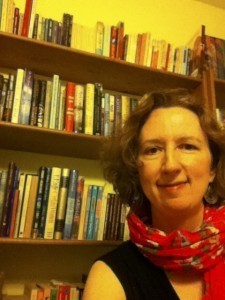 About the author: Write Now! Coach Rochelle Melander is an author, a certified professional coach, and a popular speaker. Melander has written ten books including Write-A-Thon: Write Your Book in 26 Days (And Live to Tell About It). As the Write Now! Coach, she teaches professionals how to write books fast, get published, and connect with readers through social media. Contact her for a consultation.
About the author: Write Now! Coach Rochelle Melander is an author, a certified professional coach, and a popular speaker. Melander has written ten books including Write-A-Thon: Write Your Book in 26 Days (And Live to Tell About It). As the Write Now! Coach, she teaches professionals how to write books fast, get published, and connect with readers through social media. Contact her for a consultation.
February 24, 2015
Writers@Work: How Independent Publishing Landed Me An Agent & Healed My Heart by Bridget Birdsall
 24 February 2015
24 February 2015
Note From Rochelle
Dear Writers,
It’s been a crazy February. I took on a freelance project that required me to spend about 20 hours each week in the company’s office. Of course, I still put in about 20 hours a week with my current clients. And on top of that, I teach and, in the early morning hours, I write. No wonder I crashed Sunday afternoon. Unfortunately, I woke up with some sort of nasty virus. (I won’t give you the details.) So here I am, camped out on the couch, canceling everything, and trying to rest up. GRR!
Along with canceling clients and coffee meetings, I’m moving the Write Now! Mastermind AGAIN. We’ll meet March 25, 2015 at 12:00 PM CT to talk about overcoming obstacles. Thanks for your patience.
Today’s amazing tip comes from my SCBWI colleague Bridget Birdsall. She’s the author of the amazing YA novels Ordinary Angels and Double Exposure. She’ll be appearing at Boswell Book Company this coming Sunday, March 1 at 3:00 PM. Read on to discover how self-publishing her first novel led to getting an agent and more.
Happy Writing!
Rochelle, the Write Now! Coach
“Mom, why don’t you self-publish?”
For over twenty years my son, Quinn, had witnessed my fledgling writing career. He knew about the countless near misses. He’d seen me at my desk, day after day, hour after hour. Once, when he was in middle school, he even caught me still in my p.j.’s at the computer after school. “MOM, talk about me spending too much time on the computer!”
Busted.
Quinn was with me on the plane to New York when we learned my editor from FSG had just been fired. Yikes. Now, I would be meeting with someone who’d never read a word I’d written. An overworked stranger who graciously agreed to read my work. Unfortunately, I couldn’t figure out how to make it better when she requested I revise and resubmit.
My son also shared in my disappointment when the two-book contract with Front Street Press died because they suddenly closed their doors. Amazon had stomped into the scene and it seemed the world, and the entire publishing industry was in upheaval.
“But Mom, you promised to publish a book by the time you turned fifty.”
The deadline was fast approaching, I finally agreed, “Okay, I’ll try independent publishing!”
For a dyslexic writer this task felt daunting. With the same time and patience I’ve applied to my writing over the years, I began this journey. A supporter, who’d heard me read from Ordinary Angels at Edgewood College, offered to help with the book’s publishing expenses. “This story needs to be told,” she said.
Even with support, secretly, I wasn’t sure I wanted Ordinary Angels out in the world. But at least this way I could retain control over its distribution, which at the time trumped worries about the book’s future sales.
I hired a fabulous book designer, Carol Bracewell of Flying Pig Productions, and got cover help from Kimberly Puetz. I also hired an amazing developmental editor, Lissa McGlaughlin. All told, I spent $3,300 to make the book as professional as possible. I declined the myriad services offered by CreateSpace. Though, theoretically, if I had just uploaded my word doc file, the book could have cost me nothing to publish.
 With my first draft of Ordinary Angels fresh off the CreateSpace Presses, I headed up to the Sheboygan Childrens’ Book Festival to cheer on my friend and mentor, Kathi Appelt.
With my first draft of Ordinary Angels fresh off the CreateSpace Presses, I headed up to the Sheboygan Childrens’ Book Festival to cheer on my friend and mentor, Kathi Appelt.
Do you have an agent yet? She asked. Sheepishly, I shook my head. Not that I hadn’t tried. Then she asked if I would like her to read my new book. “YES!” Of course, was she kidding?
By the end of the week, Kathi had read it, an agent she’d recommended had read it, and over the phone, I heard him say, “I’d like to represent you.”
Major coolness! Right?
But, before I signed on the bottom line, I needed to meet him. You see Ordinary Angels was no ordinary book; it’s my story, in the form of a YA novel. Furthermore, my mother had threatened to “Sue my ass off!” if I dared to publish a personal story. I did not doubt her, because she had already sued one of my brothers.
When I got to New York, yet again, my new prospective agent said in his somewhat serious and reflective manner, “If your mom sued you, it would be the best thing that could ever happen to the book.” He smiled at me and I smiled back. I’d never thought of it that way. Obviously, he was not afraid of my mother.
As it turned out, I didn’t need to worry so much, and my mom actually read the book before she passed away, which is a story for another time.
To date, Ordinary Angels remains available on CreateSpace and Kindle, and though a traditional publisher hasn’t picked it up yet, the editor of Lovely Bones, among others, gave it a strong look. This would never have happened without my agent.
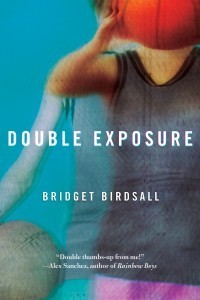 Overall, the whole process of independently publishing has served me as a writer. It helped me understand the complexity of the book business, something I now prefer to let my agent lead the way; it helped me land my agent; and landing an agent helped me shape up and sell, traditionally, my new book, Double Exposure.
Overall, the whole process of independently publishing has served me as a writer. It helped me understand the complexity of the book business, something I now prefer to let my agent lead the way; it helped me land my agent; and landing an agent helped me shape up and sell, traditionally, my new book, Double Exposure.
Most importantly, independently publishing my first book helped me to understand on a deep level that I am never happier than when I am writing! Such a different skill set than those required to design, edit, market, place or publish a book.
Independently publishing taught me what I already knew: that books are more that “consumables” in a material world, they are an opportunity to create art, and touch hearts. Something, that’s easy to forget in a numbers game played by giants. Good books help us remember who we are and why we are here. They challenge us, entertain us, heal us, and for some—they might even save our lives.
Would I do it again?
My answer is unequivocally, yes.
My initial goal was to publish a book by my fiftieth birthday. I did. My greatest hope was that my book would make a difference in the life of at least one person. It did. I’ve received countless emails from people who told me that I wrote their story. This blew my socks off. By independently publishing my story, even as a YA novel, I not only found a great agent, but I touched more than a few peoples’ hearts, while healing my own.
 About the author. Bridget Birdsall is an author and inspirational speaker. Despite dyslexic challenges, Bridget made a midlife decision to pursue her dream of writing books that touch hearts, especially young peoples’. She earned her MFA in Writing for Children and Young Adults from Vermont College and now facilitates creative, contemplative and transformative writing opportunities for writers and non-writers alike. Bridget’s young adult novel Double Exposure about a teen athlete and published by Sky Pony Press was selected by Publisher’s Weekly as one of the top anti-bully books of 2014. Her first book Ordinary Angels, about siblings surviving the death of a sibling, is part memoir and part novel, it continues to receive recognition. Bridget believes books can save lives and she is becoming known as a writer willing to tackle tough topics. A longtime resident of Madison, Wisconsin, Bridget is the recipient of numerous awards and fellowships. Check out her blog and learn more at: bridgetbirdsall.com
About the author. Bridget Birdsall is an author and inspirational speaker. Despite dyslexic challenges, Bridget made a midlife decision to pursue her dream of writing books that touch hearts, especially young peoples’. She earned her MFA in Writing for Children and Young Adults from Vermont College and now facilitates creative, contemplative and transformative writing opportunities for writers and non-writers alike. Bridget’s young adult novel Double Exposure about a teen athlete and published by Sky Pony Press was selected by Publisher’s Weekly as one of the top anti-bully books of 2014. Her first book Ordinary Angels, about siblings surviving the death of a sibling, is part memoir and part novel, it continues to receive recognition. Bridget believes books can save lives and she is becoming known as a writer willing to tackle tough topics. A longtime resident of Madison, Wisconsin, Bridget is the recipient of numerous awards and fellowships. Check out her blog and learn more at: bridgetbirdsall.com
February 17, 2015
How to Clear Clutter and Write by Rochelle Melander
17 February 2015
Note From Rochelle
Dear Writers,
I made the mistake of going on Facebook before writing this morning. Oops. I was immediately hooked by several news stories unfolding around the world. Then my phone rang. And the dog wanted me. I eventually worked on revising my novel, but a part of my head was still out in cyberspace.
Has that ever happened to you? If so, you might appreciate today’s tip on how to clear the clutter from your life!
Happy Writing! Rochelle, the Write Now! Coach
A few weeks ago, I took two days off to work on revising my novel. But my office was a mess, my son was still home on break, and I had details for future work that needed to be attended to. Guess what? I had trouble focusing on my book because I didn’t have enough free headspace to think about it.
If you have trouble letting go of worries and focusing on writing, try these tools:
1. Clear physical clutter. I have too much stuff. Maybe you do, too. It’s hard to think big thoughts when we’re dealing with straightening, cleaning, and arranging our junk.
Try this: Take a look at your living and work space: what could you let go of that would open up space and give you more room to think?
2. Dump brain clutter. Most of us hold a good bit of information in our heads—events to attend, people to connect with, work and home tasks to do—you get the idea. While we might get to our desks, we have trouble focusing when there’s so much on our minds. We need to clear out the brain clutter.
Try this: Each morning or evening (or both), jot down all of your worries, thoughts, and tasks. Just get it out of your head and onto paper (virtual or tangible). If there are tasks to complete, add them to your schedule so you know when you’ll complete them. THEN, dump the stuff you don’t want to do. If you don’t want to attend that committee meeting, cross it off your list. Doesn’t that feel better?
3. Automate decisions. Several years ago, I read a book by Dr. Oz that recommended automating one’s meals—eating the same rotation of healthy foods to avoid temptation Anytime we can automate our decisions—what to wear, what to eat, when to write—we free up brain space to think about writing.
Try this: Take a look at your life: what practices could you automate to save thinking time?
Bonus tools: Once you’ve dumped some of the internal and external clutter, it helps to practice some additional clutter-clearing practices.
+Limit time on social media, especially just before writing time.
+Limit online reading and gaming time.
+Limit television and movie viewing.
+Clean out your email inbox.
+Turn off push notifications on your phone, ipad and computer.
+If possible, hide your phone while you write to avoid being distracted by texts and calls.
When I practice this intentional space clearing, my brain stops spinning. I can play with ideas and characters. And I’m able to write. Whew!
February 10, 2015
How to Make Time to Write (Even if You Work Full Time) by Rochelle Melander
What gets in the way of your writing? If you need support around something, send me a note and let me know: rochelle@writenowcoach.com. Who knows? I may cover your obstacle at the Write Now! Mastermind class later this month. If not, you can bet I’ll tackle it in a tip.
Today’s tip tackles another huge obstacle, and it’s one that nearly all of us face.
Happy Writing!
Rochelle, the Write Now! Coach
“I’d write a book, if I only had time.” —says nearly everyone
When I ask colleagues and clients why they haven’t written their book yet, they all say the same thing: I don’t have time.
I say it, too. With juggling my family, clients, editing projects, teaching, and blogging, I only get to my book when I have leftover time. (And guess how often that happens. Yup. Never.)
And as much as I love everything I do, I feel awful when I don’t write. And I get crabby.
Then I read Barbara Sher’s book, Refuse to Choose. She offers tools for scanners, people who can’t choose a single passion, but scan the horizon for what engages them. In this helpful resource, Sher presents several life design models that allow scanners to work at multiple passions. With Sher’s models as inspiration, I’ve created three writing life models for people who work full time jobs. See if one of these might fit your life.
The Exercise Class Writing Life Model
I’m willing to bet that you take some sort of exercise class at least once a week if not more—yoga, Spin, or Zumba. Or maybe you prefer classes in crafting or cooking. Think about what you’ve done to make time to attend that yoga class every Tuesday and Thursday from 6:00-7:00 PM. Now forget yoga and schedule your writing as if it were a bi- or tri-weekly exercise class.
The Weekend MBA Writing Life Model
Many schools offer MBAs and other graduate degree programs to working adults by squeezing the program into two years of weekends. But as a writer, you don’t need to spend money on an expensive degree. Set aside a portion of each weekend to write your book.
The Lunch Hour Writing-Life Model
This month, I’m working part time at a nonprofit as an editor. Because I need to fit in 20 hours a week into an already-packed schedule, I usually work through my lunch break. Yesterday, it occurred to me that if I did this full time, this would be the perfect time to squeeze in a little writing—because everyone else in the office is focused on their own thing. Try taking your writing to lunch today!
And the variations. Of course, you can take these ideas and play with them until they fit your work and life schedule. If you’re a teacher with summers off, you might choose to spend the summer writing. Or, if you happen to be an early riser like Anthony Trollope, you can adopt the Early Bird Writing Life Model and get all of your books written before you go to work. (By the way, Trollope learned this skill from his mother Frances who began writing at 4 AM and finished in time to prepare breakfast for her family.) Perhaps you’re better suited to writing a quick scene while your family watches a sit com in the evening.
Choose your model. Then, go for it. As I always say, do what works for you.


